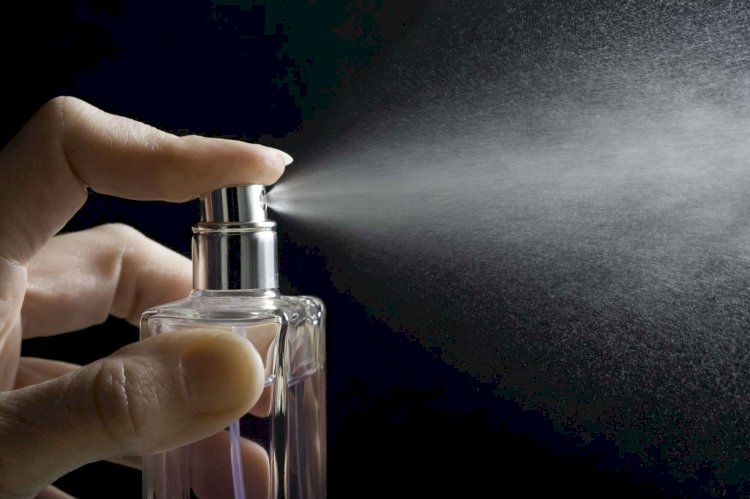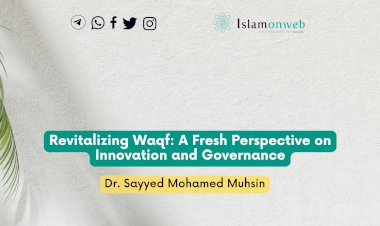Consumption of Gelatin and Use of Alcohol-Based Perfume: Exploring the Concepts of Istiḥālah (Modification) and Istihlāk (Dissolution) in Fiqh
What are the Islamic rulings on consuming gelatin for food and medicine? Is it permissible to use perfume which contains alcohol?
Istiḥālah is an Arabic word which means modification or changing one thing to another thing. Also, it means transformation or conversion of material which involves changes in its composition and properties. Also, there are some definitions from all four madhhab. Referring to Madhhab Hanafi, al-Kasani said that Istiḥālah means the changing of its original form.[1] Next, al-Ra’ini from Madhhab Maliki said that Istiḥālah is the changing of its characteristics which lead to the changing of its name like musk.[2] Besides, al-Sharwani from Madhhab Shafie said that Istiḥālah means the changing of the matter itself and its characteristics like the vaporization of water.[3] Lastly, referring to Madhhab Hanbali, Istiḥālah is the changing of the matter itself, its characteristics, and also its name.
Istihlāk is also an Arabic word that means perishing one thing inside another thing or extreme dilution. As for the terminology, it means perishing an impure matter inside another pure matter, which leaves no effect on the impure one, in terms of its color, smell, or taste. Some Fuqaha’ said that Istihlāk means the mixing of an impure thing and pure thing together, while the impure one is in a very small percentage.[4] Then, all of the impure thing’s charateristics perished by the pure one.
Allah said in Surah al-Baqarah, verse 168,
يَا أَيُّهَا النَّاسُ كُلُوا مِمَّا فِي الْأَرْضِ حَلَالًا طَيِّبًا وَلَا تَتَّبِعُوا خُطُوَاتِ الشَّيْطَانِ ۚ إِنَّهُ لَكُمْ عَدُوٌّ مُّبِينٌ
“O humanity! Eat from what is lawful and good on the earth and do not follow Satan’s footsteps. He is truly your sworn enemy.”
This verse clearly stated that we have to eat and drink what is halal and good for our health. But how about the consumption of gelatin? Gelatin is a protein obtained by boiling skin, tendons, ligaments, or bones with water, which usually obtained from pigs. Gelatin is usually used in cosmetic like shampoos, food like puddings, candies, and ice cream, and also medicine like capsules. All these things are very commonly consumed by people nowadays, including Muslims. So, is it allowed according to Islamic ruling as its substance is from pigs? There are two opinions regarding this matter.[5]
First, most of the scholars (jumhur) said that gelatin from pigs is impure and forbidden in Islam. It is because there is no complete Istiḥālah or Istihlāk happened in the process of producing it, which it is reported that there is proof of the incomplete Istiḥālah and Istihlāk in it by undergoing spectrum analysis. They also said that we are not currently in extreme situation of necessity (darurah) where there are no resources left other than pigs. Plus, they said it is still easy for us to consume gelatin from other halal resources like cows.
Second, some scholars said that gelatin from pigs is halal as Istiḥālah and Istihlāk occurred completely therein. It is the view of Muhyiddin Ali al-Qaradaghi. This is referred to the proof reported by the Islamic Organization of Medical Sciences in their eighth medical jurisprudence symposium. From these two opinions, the researcher is more likely to choose the first opinion, which is the consuming of gelatin from pigs is forbidden. It is because their evidences are stronger than the second opinion.
Next, is it allowed for us to consume drinks or medications that contain alcohol in it? We can classify this issue into three classifications based on the amount and process of alcohol in them. First, the percentage of alcohol is very low. Second, the percentage of alcohol is very low and it happened naturally. Third, the percentage is high and it happened as a result of human act.
First, the percentage of alcohol is very low which is added just to preserve its aroma and color like Coca Cola, or Pepsi. The percentage must not exceed 3%, which it also includes other soft drinks in the market. So, it is allowed to consume these drinks as the alcohol has been perished by the high percentage of water itself. As stated by the Islamic Organization of Madical Sciences, it is allowed to consume it because of its percentage and purpose.[6]
Second, the percentage of alcohol is very low, and it happened naturally, like curd and any fruit juices. This is because of its low percentage which is not exceeding 5% and it is natural not a result of human interference. It is allowed as long as it does not intoxicate the consumer of it.
Third, the percentage is high, and it happened because of human’s act like wine, beer, rum, whisky and many more. All of these drinks are clearly causing someone to be intoxicated, so it is forbidden in Islam. But if someone drinks it just a little and does not get drunk, is it allowed? No, as the Prophet said, “What intoxicates in large amounts is prohibited even if taken in small amounts”.
So, the researcher concluded that there are two opinions about the consumption of gelatin from pigs in food, medicine, or cosmetic. The first opinion is it is forbidden, while the second one is it is allowed. Besides, regarding the issue of consuming alcohol inside drinks or medicine, it is divided into three classifications. First, it is allowed as the percentage of alcohol in it is very low, not even exceeding 3%. Second, it is also allowed because the percentage is low, and the alcohol produced naturally, not by human’s act. Third, it is forbidden because of the percentage of alcohol in it is high.
Major Reference:
Syed Yusuf, Sayed Muhammad Redzuan and Arif, Arif Ali and Zakariyah, Luqman (2018) تأثير قاعدتي الاستحالة والاستهلاك في أحكام الأغذية والأدوية: دراسة فقهية تحليلية = The impact of the two maxims of istiḥālah and istihlāk upon the rulings on food and medicine: an analytical juristic study. International Journal of Fiqh and Usul Al-Fiqh Studies (IJFUS), 2 (2). pp. 6-17. E-ISSN 2600-8408
Endnotes:
[1] Al-Kasani, Badaie’ as-Shonaie’ Fi Tartib as-Sharaie’, (Beirut: Dar al-Kutub al-‘Ilmiah, 2nd Edition, 1986), p 1/85.
[2] Al-Ra’ini, Mawahib al-Jaleel Fi Sharhi Muktashori Khaleel, (Damshik: Dar al-Fikr, 3rd Edition, 1992), p 1/97.
[3] Al-Sharwani, Hawashi al-Sharwani Wa Ibn Qasim al-‘Abadi ‘Ala Tuhfatil Muhtaj Bi Sharhi al-Minhaj, (Beirut: Dar al-Kutub al-‘Ilmiah, 1st Edition, 1992), p 1/303.
[4] As-Sharbaini, Al-Iqna’u Fi Hali Alfaazi Abi Shuja’, (Beirut: Dar al-Kutub al-‘Ilmiah, 3rd Edition, 2004), p 1/89.
[5] Syed Yusuf, Arif, Zakaria, 2018, “The Effects of Modification and Dissolution On the Islamic Law of Food and Medicine”, (Kuala Lumpur: IIUM Press), p 12.
[6] “Majallah Majma’ al-Fiqh al-Islami al-Duwali”, (Jeddah, 10th Session, 1997), p 2/457.
About author:
Muhammad Idham bin Haris Suhairi is Degree Student, Department of Fiqh and Usul al-Fiqh, International Islamic University Malaysia
Disclaimer
The views expressed in this article are the author’s own and do not necessarily mirror Islamonweb’s editorial stance.
























Leave A Comment